.jpg)
Cormorant Channel
“Fun and laughter on our summer holiday,
no more worries for me or you,
for a week or two.” ~Cliff Richards
On the last night of our camping trip to northern Vancouver Island and adjacent beaches, at my insistence, my wife and I stayed at Miracle Beach, one of the campgrounds I’d used on the first leg of a 2 month bicycle trip, 24-years-ago, that ultimately took me through Alaska, Yukon, and the length of British Columbia.
Back in ’94, I was shocked by the $14.50 fee … not to mention the cold showers.
Still, memories of the view across the Salish Sea to the glaciated heights of the Coast Range around Mt. Waddington, B.C.’s highest peak, and the quiet solitude of the place (broken only by a nocturnal visit from marauding racoons) lured me back.
What awaited last week at the provincial park can only be described as an open air carnival — imagine a suburb where the inhabitants of every household are doing their thing … outside.
Though a sign said “Full,” we managed to grab one of three vacant spaces (out of 202) for $33.00., then went for a walk along the beach.
The view was anything but miraculous. No blue ocean. No horizon of jagged peaks. Visibility extended a few metres into the formless grey, ripples along the shore providing the only sense of dimensionality. My eyes watered. Occasionally, a bather would appear ghostlike from the shroud of smoke.
A couple of sites away from ours, an RV festooned with blinking LED lights hosted a disco party blaring Abba and Michael Jackson tunes. While the adults downed cocktails and whooped approval, a dozen kids danced — the more demonstrative “go-go girls” prancing atop picnic tables.
This was not my idea of “getting away from it all” at all. But it was hard not to take delight in the youthful merriment of the scene, though as the night wore on and “Dancing Queen” echoed through the trees outside our tent, I did do my best.
Ideally, summer holidays should be a carefree time. Sadly, conversation (not around the campfire, since a province-wide ban is in effect) inevitably veered toward environmental calamity and the inescapable evidence that obscured “Beautiful British Columbia” under a blanket of smoke from over 500 wildfires raging across the province. This is the third year in a row that smoke has clouded our summer vacation.
“Must I thus leave thee Paradise? Thus leave
Thee native soil, these happy walks and shades,
Fit haunt of gods? Where I had hope to spend,
Quiet though sad, the respite of that day
That must be mortal to us both. O flowers,
That never will in other climate grow,
My early visitation, and my last
At ev’n, which I bred up with tender hand
From the first op’ning bud, and gave ye names.” ~John Milton, Paradise Lost (11.269-77)
We had outrun the grey-brown cloud for a few days, on northern Vancouver Island and Malcolm Island in particular, where blue skies and clear views east across Queen Charlotte Strait to the mountains lifted our spirits. But even here we were reminded there’s trouble in paradise.
At Bere Point, on the east coast of Malcolm Island, a group of children had gathered to enjoy a tire swing down on the beach. I grabbed my camera and telephoto lens to record the idyllic scene. And the resulting image is romantic. However, the conversation I overheard was anything but. In surprising detail, the kids discussed an event that has drawn the attention of the world this month: the plight of a grieving mother orca known as J35 who carried her dead calf through these waters for an “unprecedented” 17 days.
Perhaps I should not be surprised that children (estimated age range between 7 and 12) would know these southern resident whales are in peril, suffering from hunger due to scarcity of their principal diet, chinook salmon, that their health is impacted by chemical pollution and marine traffic noise. Nonetheless, all these threats to the survival of a beautiful family of sea-dwelling mammals came from the mouths of babes.
My first consciousness of individual “being” in the world came to me at eight-years-old, perched in the branches of a towering oak at the edge of Black Cat Wood.
Would that I might regain the innocence and joy first aroused in English fields, glimpsed long enough to bring me to tears on a recent visit, or even a bit of the charming naiveté that produced beach party films like Cliff Richards’ Summer Holiday.
The emotional effect of environmental decline, a subject that concerned English poets as far back as Milton (1608-1674), finding full expression in the Romantic era of the late 18th century, has recently re-emerged as a field of psychology.
On the final leg of our holiday, I tuned in to a phone-in show on CBC radio that asked listeners how the dark blanket of smoke was affecting their mood. Not one of the respondents dwelled on their mental discomforts as much as they expressed red hot anger towards politicians who fiddle while the world burns. Particular outrage was directed at so-called leaders who spout the same mendacious talking points while pursuing policies guaranteed to exacerbate existing environmental crises.
In the week since our return, surrounded by a miasma of acrid smoke, I’ve read articles and studies examining a malady suffered by an increasing number of people around the world. Marked by feelings of despair “in relation to experienced or anticipated ecological losses, including the loss of species, ecosystems, and meaningful landscapes due to acute or chronic environmental change,” “ecological grief” darkens our days.
We are left feeling like strangers in a strange land, bereft of the landscapes that once comforted, kept us rooted and “at home.”
Such feelings persisted throughout my holiday. I can’t be sure if they colour the photographs I made, but a sense of foreboding was never far away, even as we found a trail out of the pall and into the light of a beautiful day at Bere Point.
Unlike Alert Bay on nearby Cormorant Island, where the living culture of the Kwakwa̱ka̱ʼwakw people takes centre stage, First Nations history is absent from the annals of Sointula, where the museum is almost entirely dedicated to the story of 19th century Finish settlers who attempted to build a communist utopia on this remote island.
Though members of the commune worked hard to achieve their socialist-inspired Eden, neither hammer nor sickle were enough to stave off tragedy and human foibles. For a time, after the dissolution of the experiment, survivors and descendants prospered in fishing and forest industries, but like many other communities in the area, what an old trapper friend used to call “basic bush economics” has taken its toll as overexploited timber and fish resources have dwindled.
“Leave your dens, abandon your cars and walk out into the great mountains, the deserts, the forests, the seashores. Those treasures still belong to all of us. Enjoy them to the full, stretch your legs, expand your lungs, enliven your hearts — and we will outlive the greedy swine who want to destroy it all in the name of what they call GROWTH.” ~Edward Abbey
For more than 25 years I’ve tried to follow the late American environmental writer Edward Abbey’s call to enjoy the remaining beauty of the world. Advancing age and infirmity have kept me off mountainsides for some time now, but seashores are still within reach — at least those not guarded by cliffs.
The beaches of Malcolm Island, where we fell asleep to the soothing sound of the waves and where I crawled on my belly to photograph shorebirds, deepened my love for this wild archipelago at the same time as they heightened the sense of urgency I feel for its conservation.















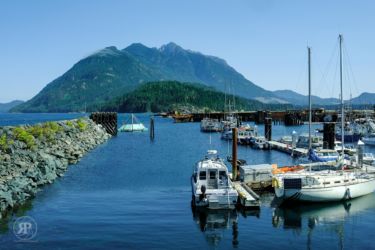
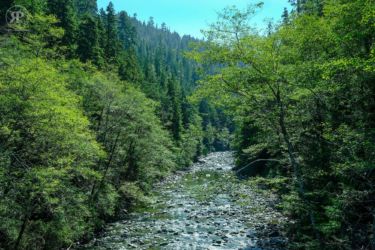
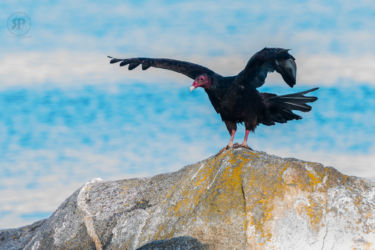
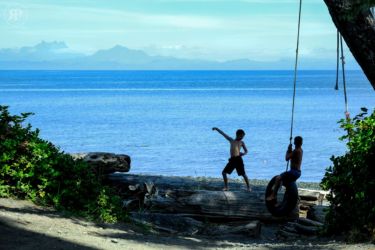
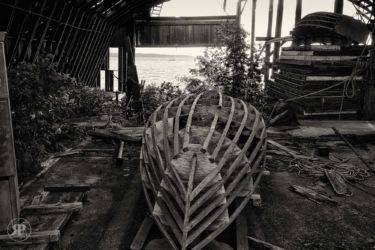
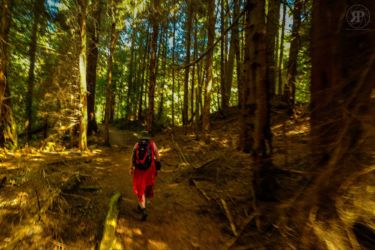
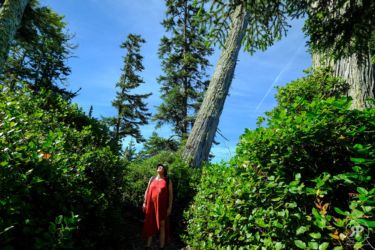
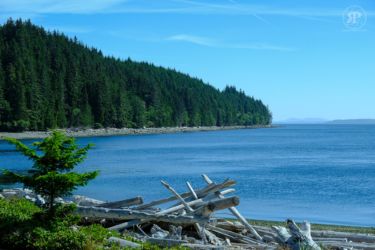
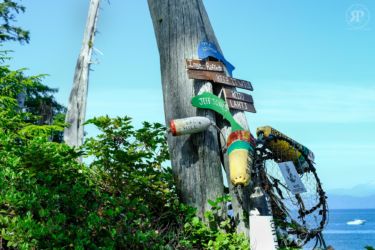
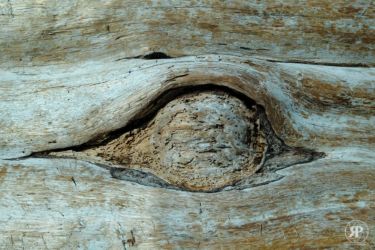
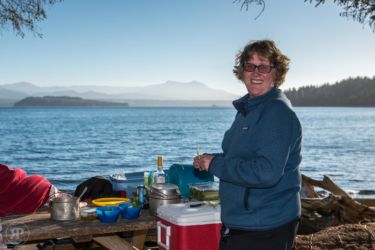
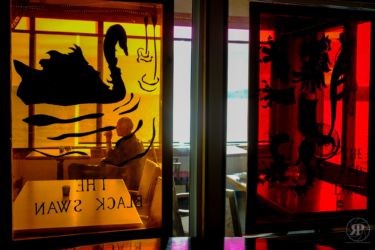
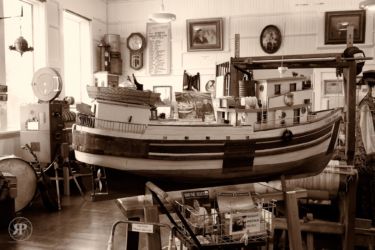
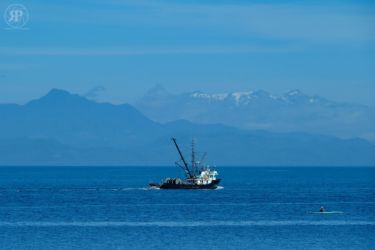
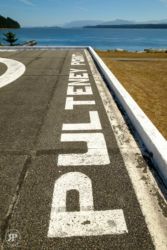
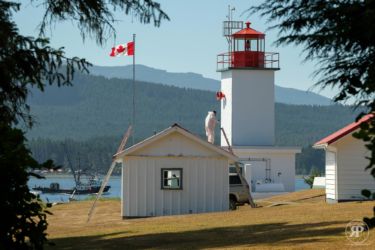
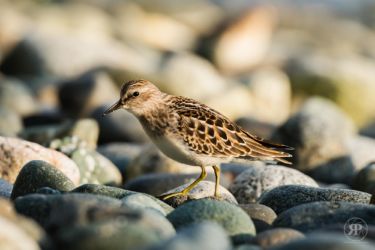
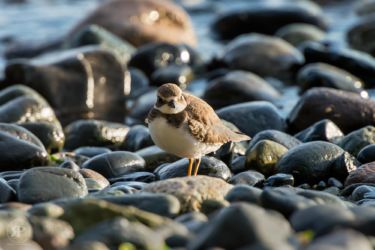
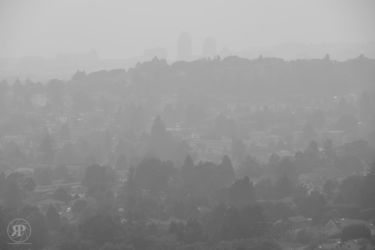
cj gordon - We’ve had smoky skies up here in Penticton for about two months now. Would be willing to trade for where you were. For a few days I couldn’t even see the apartment blocks that are about 3 blocks away it was that thick.August 30, 2018 – 4:46 am
Raymond Parker - Yup. It was the worse I’ve ever experienced. As you can see from the final image in the gallery above, we returned ― beginning at Campbell River ― to extremely dangerous levels of smoke/particulate. For what it’s worth, we were thinking of those of you “on the front lines.” We are lucky to have the countervailing ocean breezes which have finally nullified the offshore flow.August 30, 2018 – 8:35 am